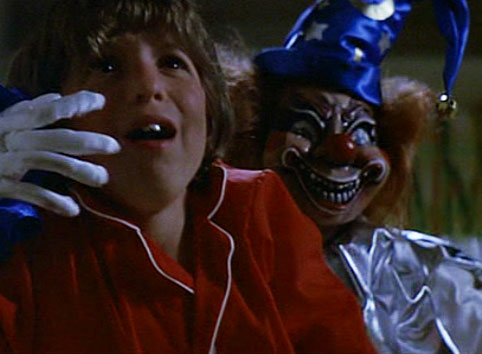Few elements in movies are as divisive as child actors. Ignoring the strenuous work that comes with the job and the implications of global exposure at such a young age, kids in movies need to relay the shared experience of childhood while also appealing to the older audience that is buying the tickets in the first place. It doesn't help that acting potential of kids is often as unreliable as it is scrutinized, so it's small wonder why most movies ignore children altogether or relegate them to diversionary roles. But that doesn't need to be the case.
From Stand by Me to Hugo, kids, when well-written and well-acted, can make a lasting impact on a viewer, perhaps because of how rare that combination is. So while most kids onscreen will remain relegated to background characters or family-friendly affairs, it'll just make the standout performances of young talent all the more revelatory. So to honor this week's kid-centric but definitely not kid-friendly The Sitter, here are a few tips on how to make the most out of kids in movies.
Play To Their Strengths
The non-family films that kids maintain a dominant presence in are, somewhat surprisingly, horror movies. It's a win-win scenario: The acting usually doesn't require much nuance beyond looking scared and children serve a useful purpose as easily frightened and vulnerable surrogates for the audience. They also make for effective plot devices, as the need to protect one's child is genetically ingrained in us, and it makes the struggles of the adult characters trying to protect them more relatable, even to non-parents.
It's a well-worn plot mechanic, with classics like Poltergeist and Jaws featuring adults confronting horrors so as to protect their children. It's a simple, arguably sneaky way of garnering audience sympathy but it works because it can be pretty hard to hate a child character, at least initially. As plot devices, kids work well, but the more you give them to do, the more complicated things get. 
There's A Big Difference Between Precocious and Obnoxious
Writing a young character for an older audience is a tricky proposition because, frankly, most kids aren't all that interesting. The impulse then is to bump up the IQ of the character by a few years and play off of the importance of what they say with the "mouths of babes" surprise that they're saying it. When Tom has to sort through the wreckage left over from losing the girl of his dreams in 500 Days of Summer, its on the sage romantic advice of his pre-teen sister that he begins to move on.
It fits with the film's overt tween-ness but even a passing thought on how someone can offer thoughtful relationship musings before puberty will raise eyebrows. The more nuggets of wisdom you have your young characters spouting, the more they come off as exposition-peddlers, and if there's one kind of kid everybody hates, its a know-it-all. Having your kids act adult-like is all well and good, but never let overly-precious or glib dialogue dictate their existence. _Days_of_Summer_36688_Medium.jpg)
Juxtaposition Is Fun, Just Make Sure it Counts
The unlikely badass is a pretty staple trope of comedies and action films, and there aren't many more unlikely than a kid. The contrast between a person's age and his or her actions makes for great comedy, so when 11-year-old Hit-Girl from Kick-Ass kills bad guys with flair and drops one-liners that would make a stevedore blush, you crack up rather than question the ethics of someone having more bodies to their name than candles on their birthday cake. Kick-Ass gets away with its ultimate child power-fantasy through gleeful disregard for any pretence of reality, but the absurdity makes the attempts to turn-around and humanize Hit-Girl a failure.
Not nearly as violent but just as salty-tongued, first-grader Ronnie from Role Models will win over any guy in the target demo with his advanced potty mouth and unabashed love of "boobies," but the film gives Ronnie's outbursts a realistic source, making his obsession with four-letter words understandable but no less hilarious. A child acting wildly inappropriate for their age makes for great comedy, but if you're going to make that a focal point of your movie instead of just a gag, you need to make sure that there's more to the character than just caricature. 
You Gotta Grow Up
An annoying kid in a supporting role can be ignored, but a child as a lead character demands identification with the viewer, and the best way to make your audience care about them is showing how the child grows up. It's a universal experience, one that's provided the blueprint for countless stories, and the best tend to fall into two categories:
1) Mentor-Student: The young person faces a conflict that can only be overcome by training with the elder.
2) Growing Up Together: A group of young people face a conflict together and must rely on each other to persevere, while also recognizing that their lives will or are changing.
In both cases, the story is about treating the child as an equal, either with their friends or with their mentor, and both formats benefit by keeping a level playing field. Super 8 had more great child performances than you'll often see in a year because the characters weren't forced to keep up with the adults, they acted opposite one another and were allowed to act like kids, which, when done believably, is more endearing than any number of smart aleck remarks. In a similar vein, a child actor can benefit greatly from the presence of an older one because as the master understands the apprentice the more they grow, so to does the audience. Either way, the emphasis is on treating younger people with respect, something that's hard to do the older you get, but its the only way to make a kid an interesting lead. 